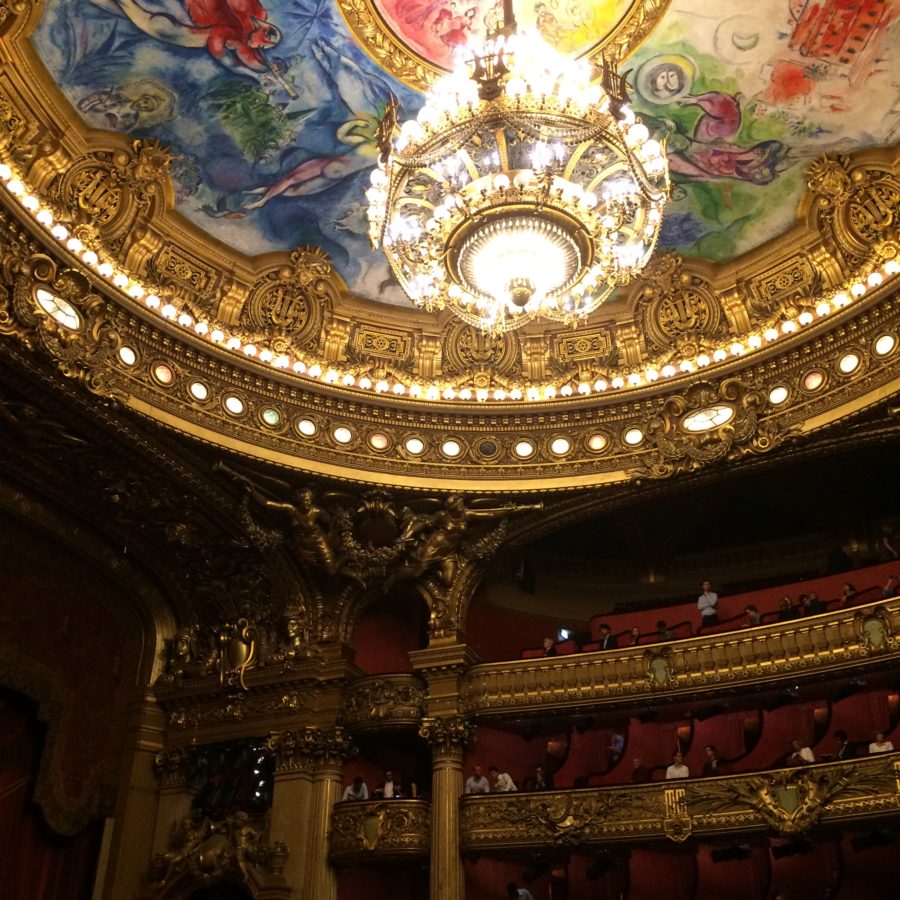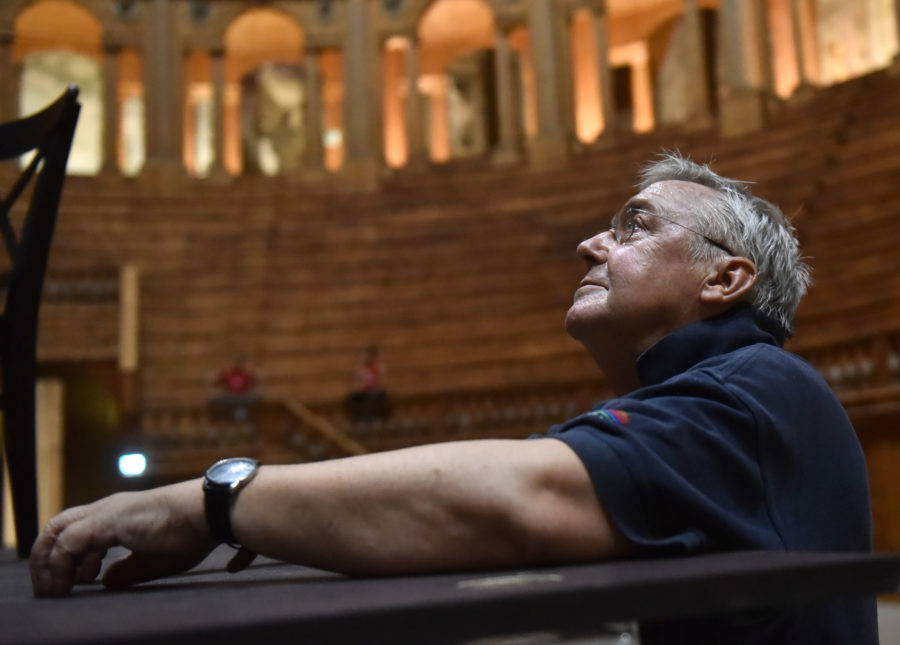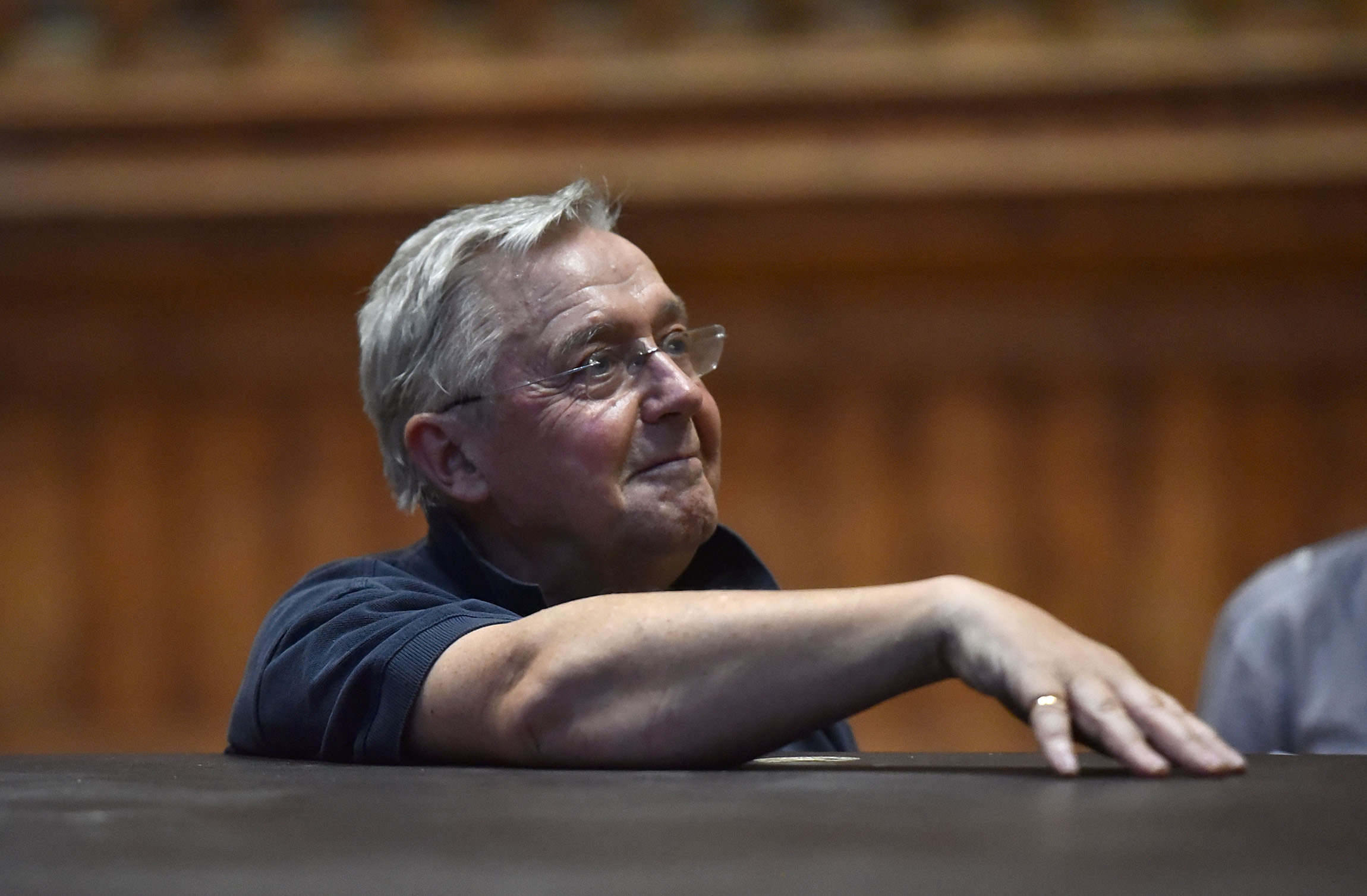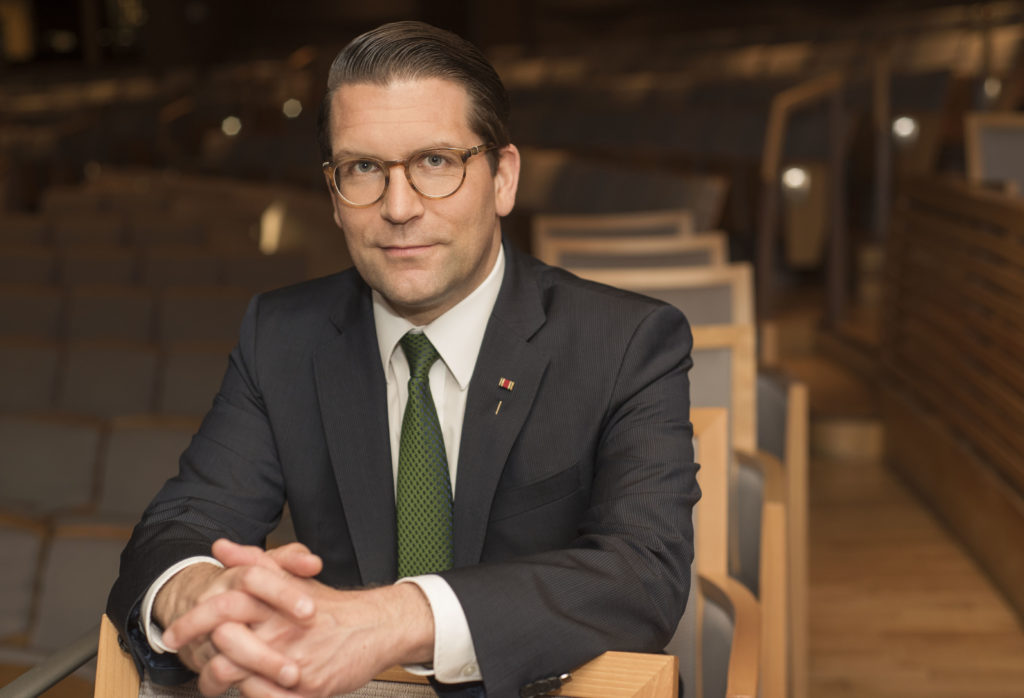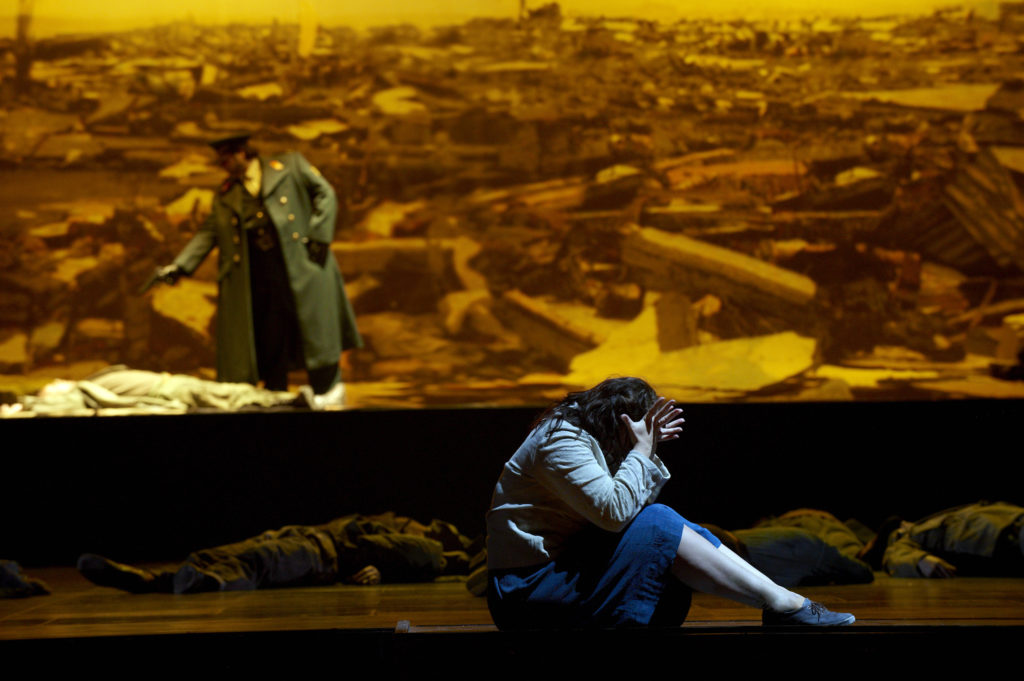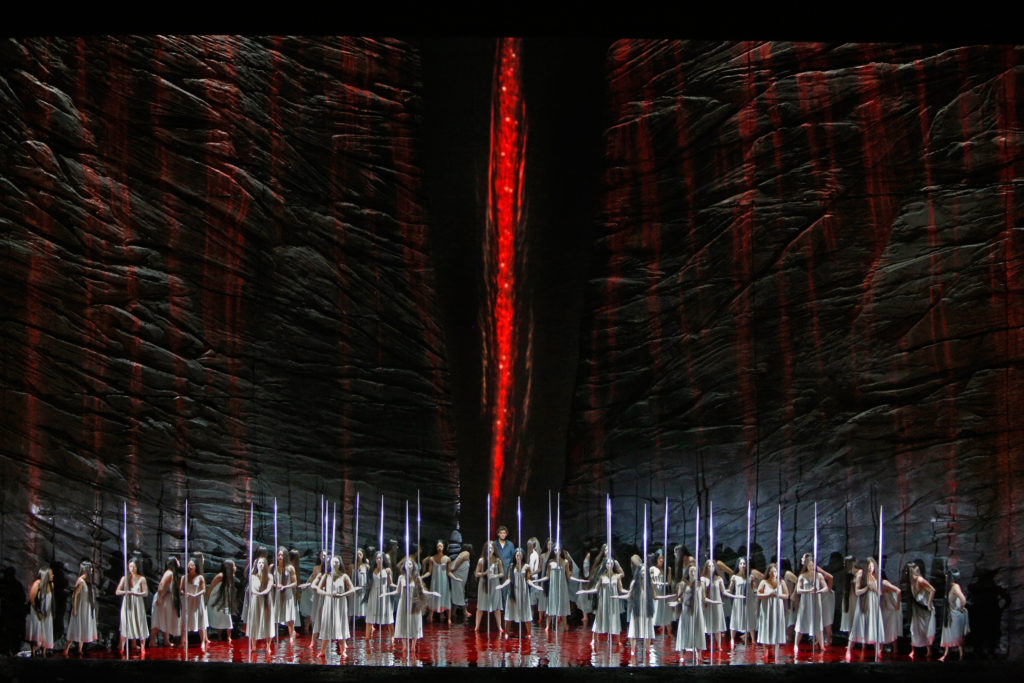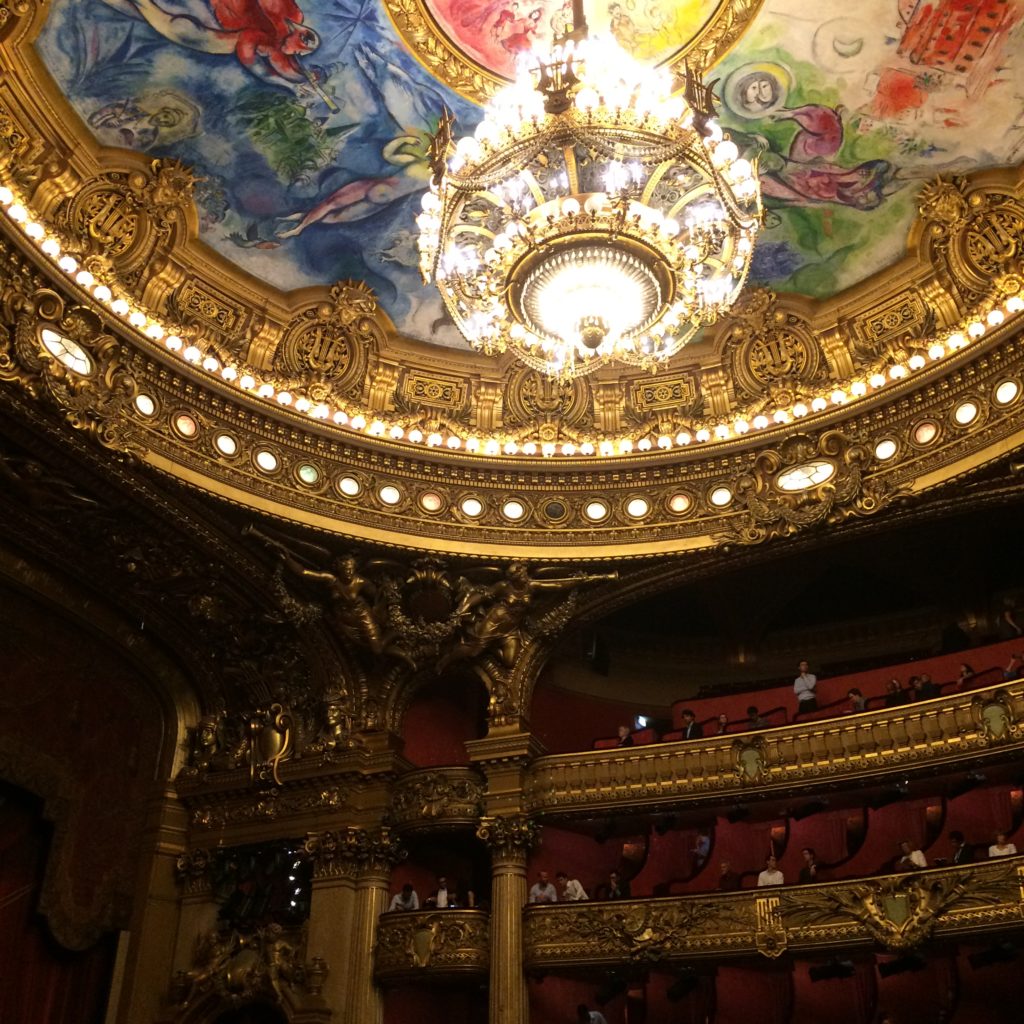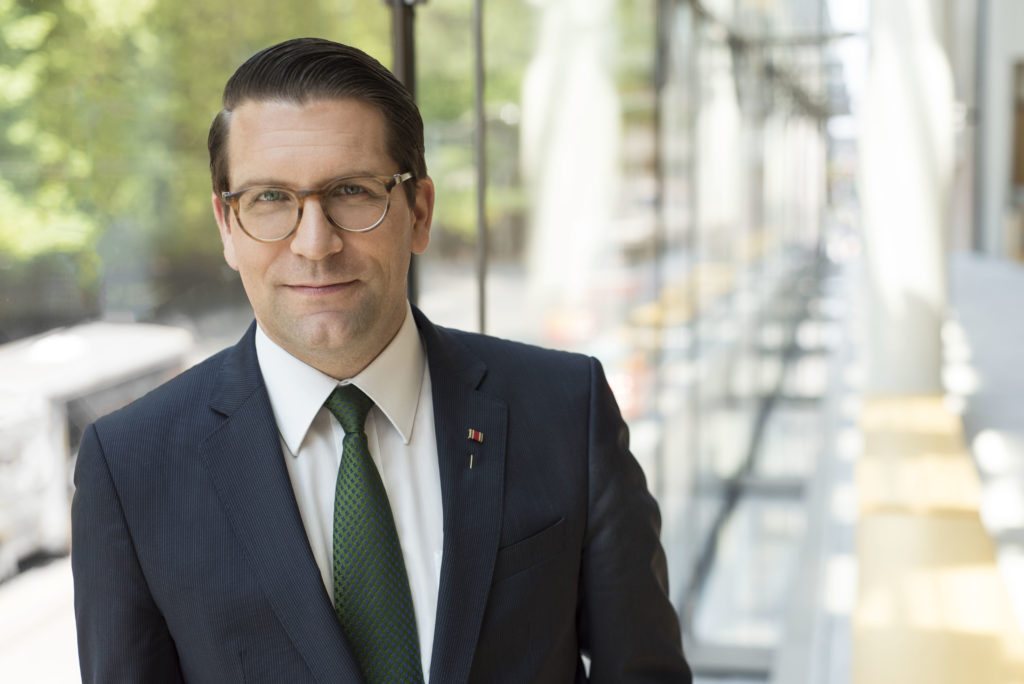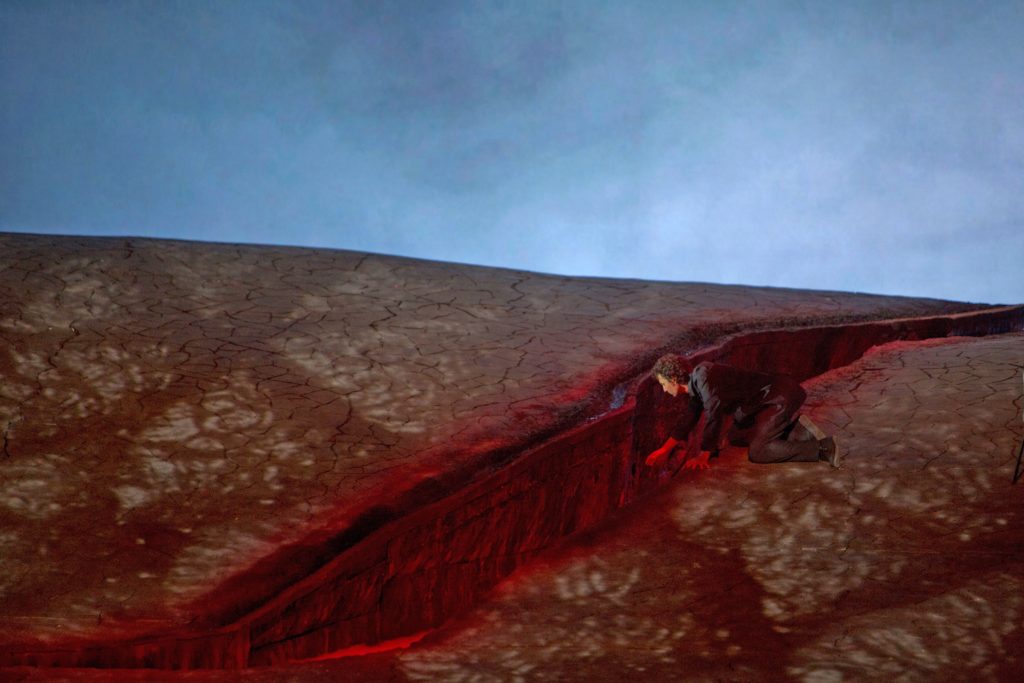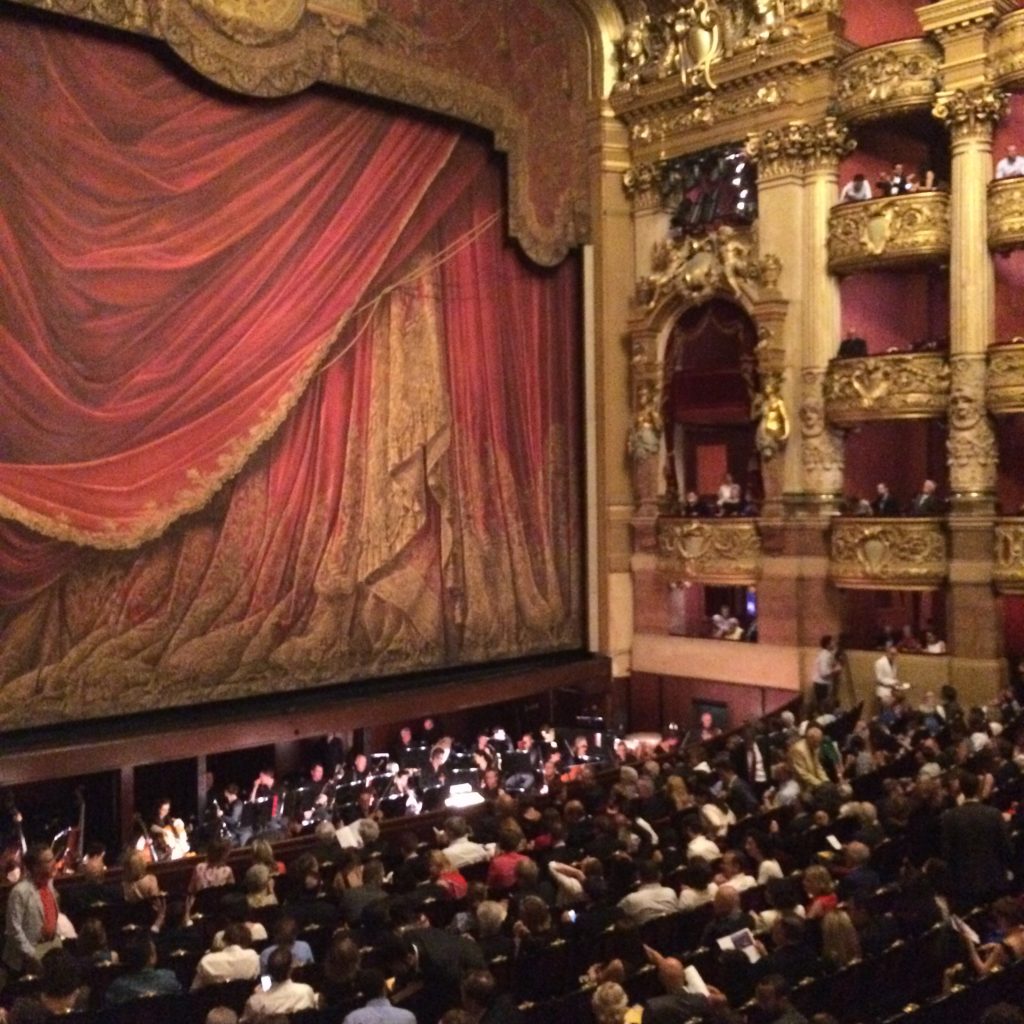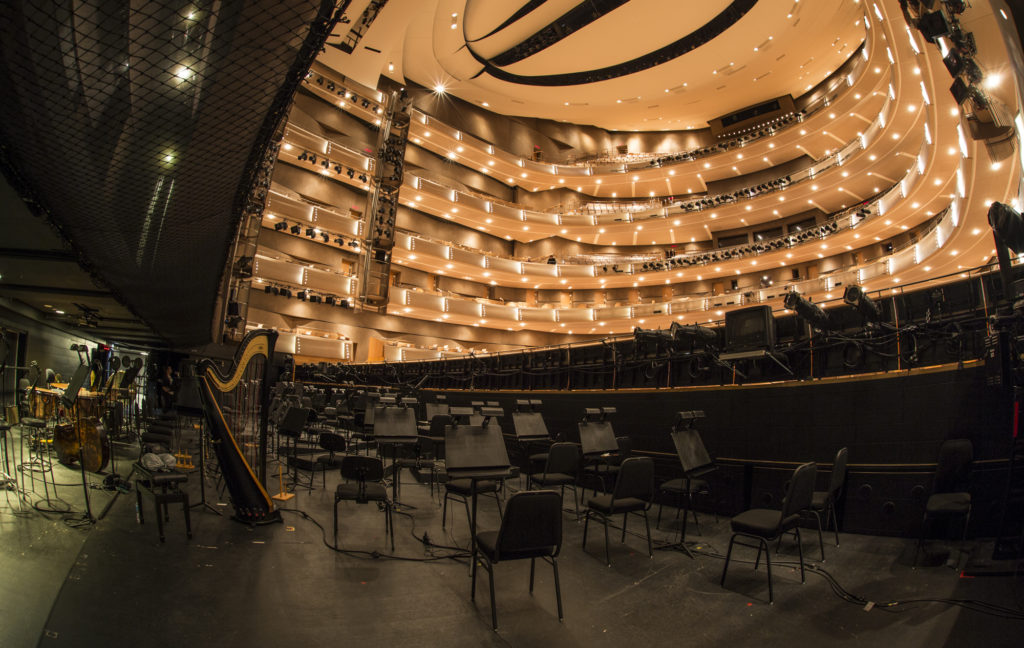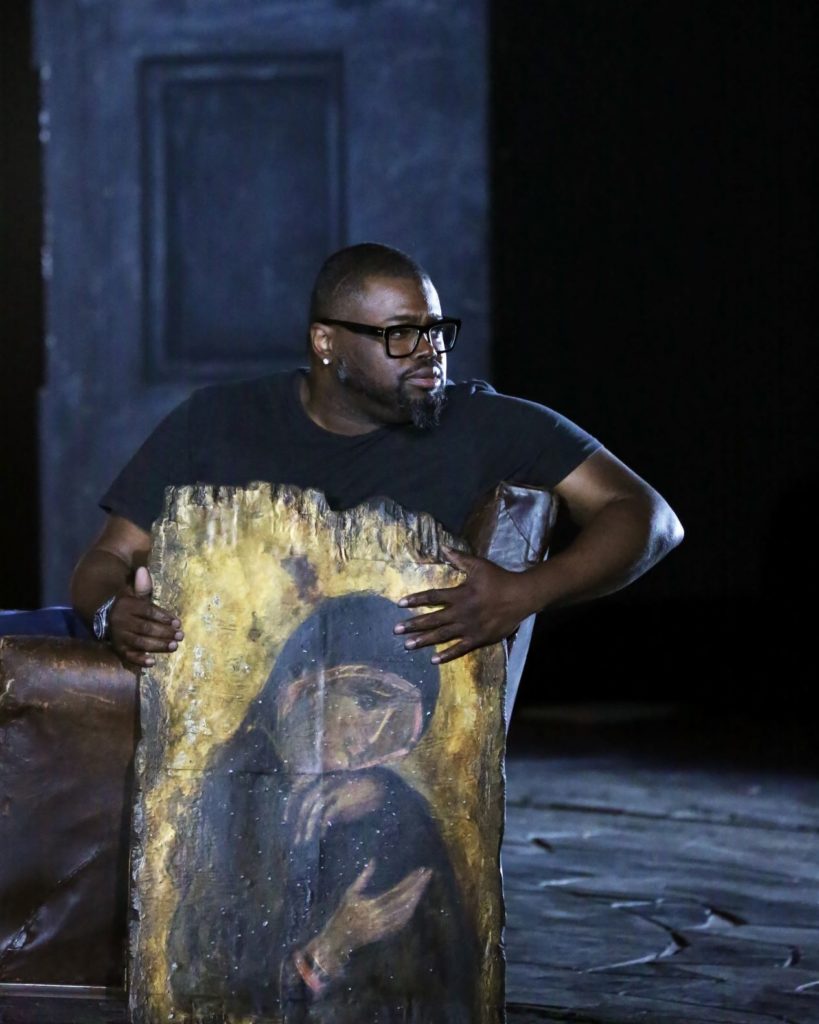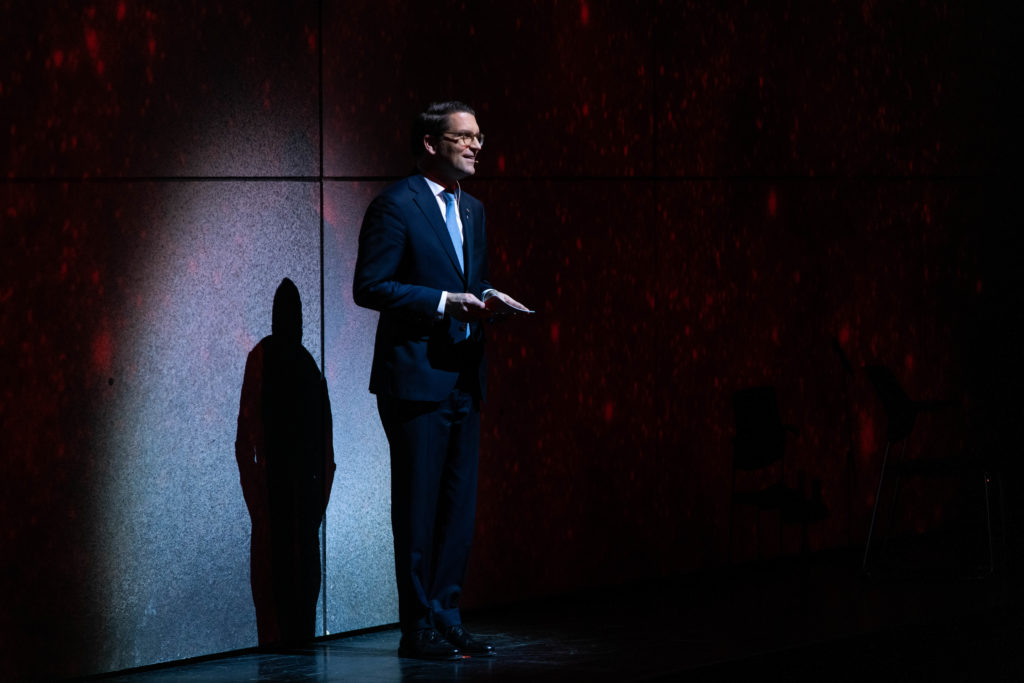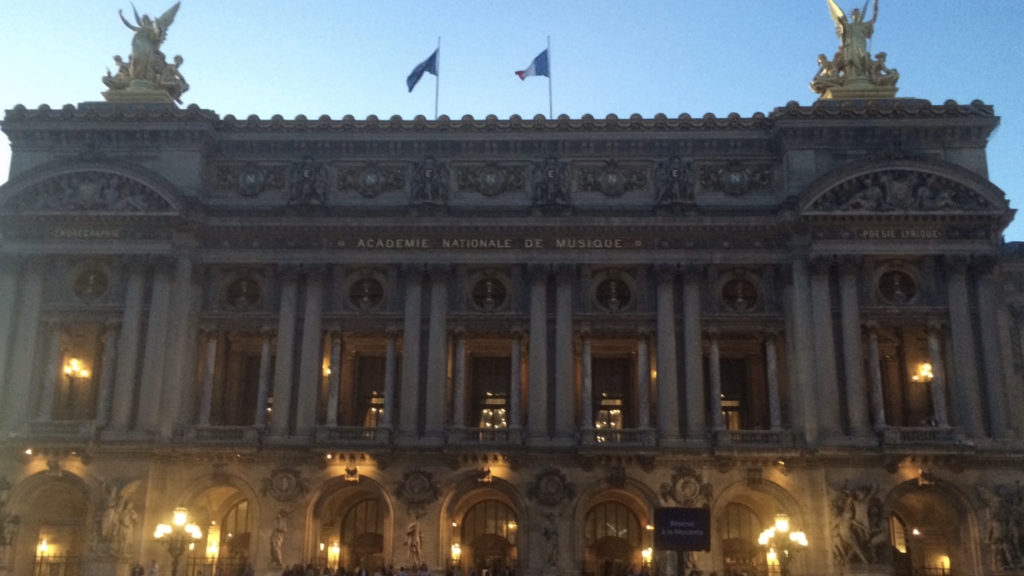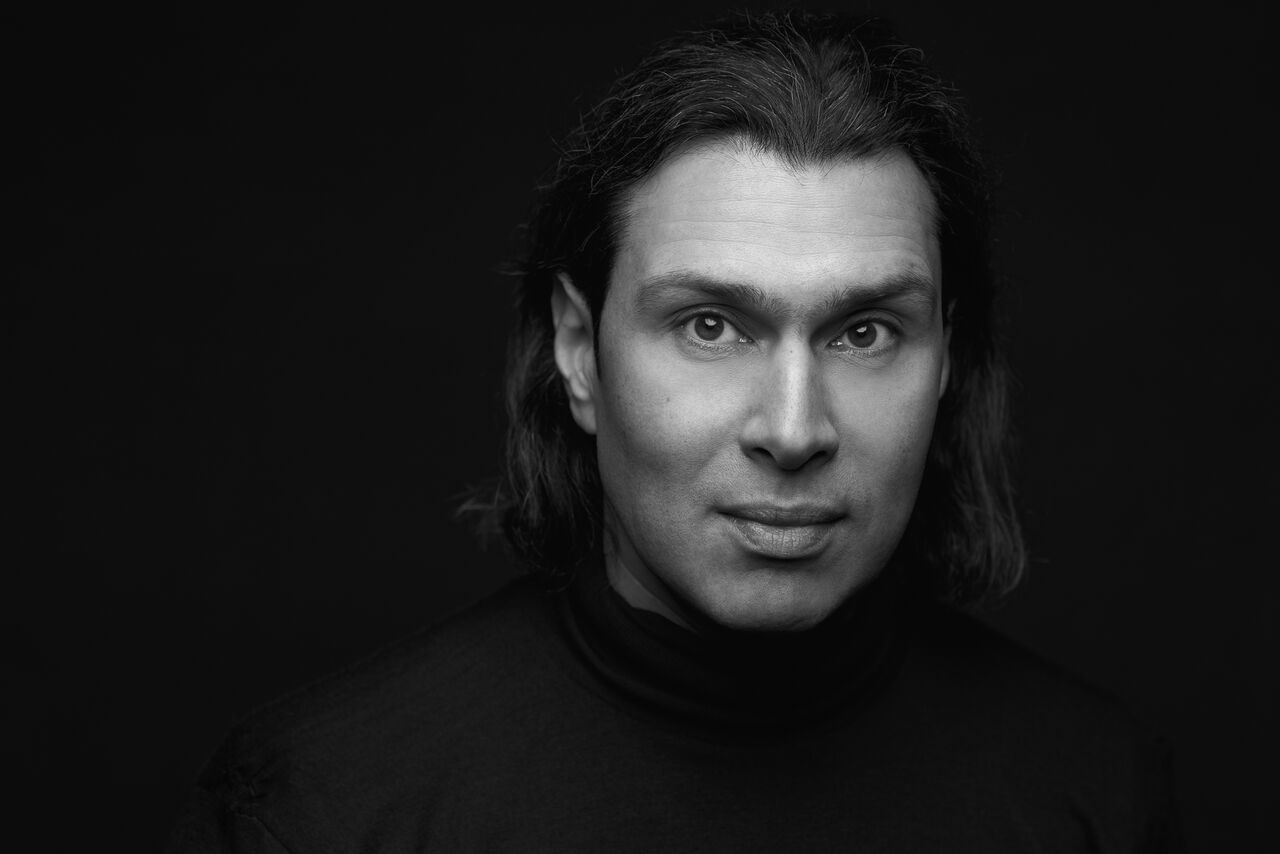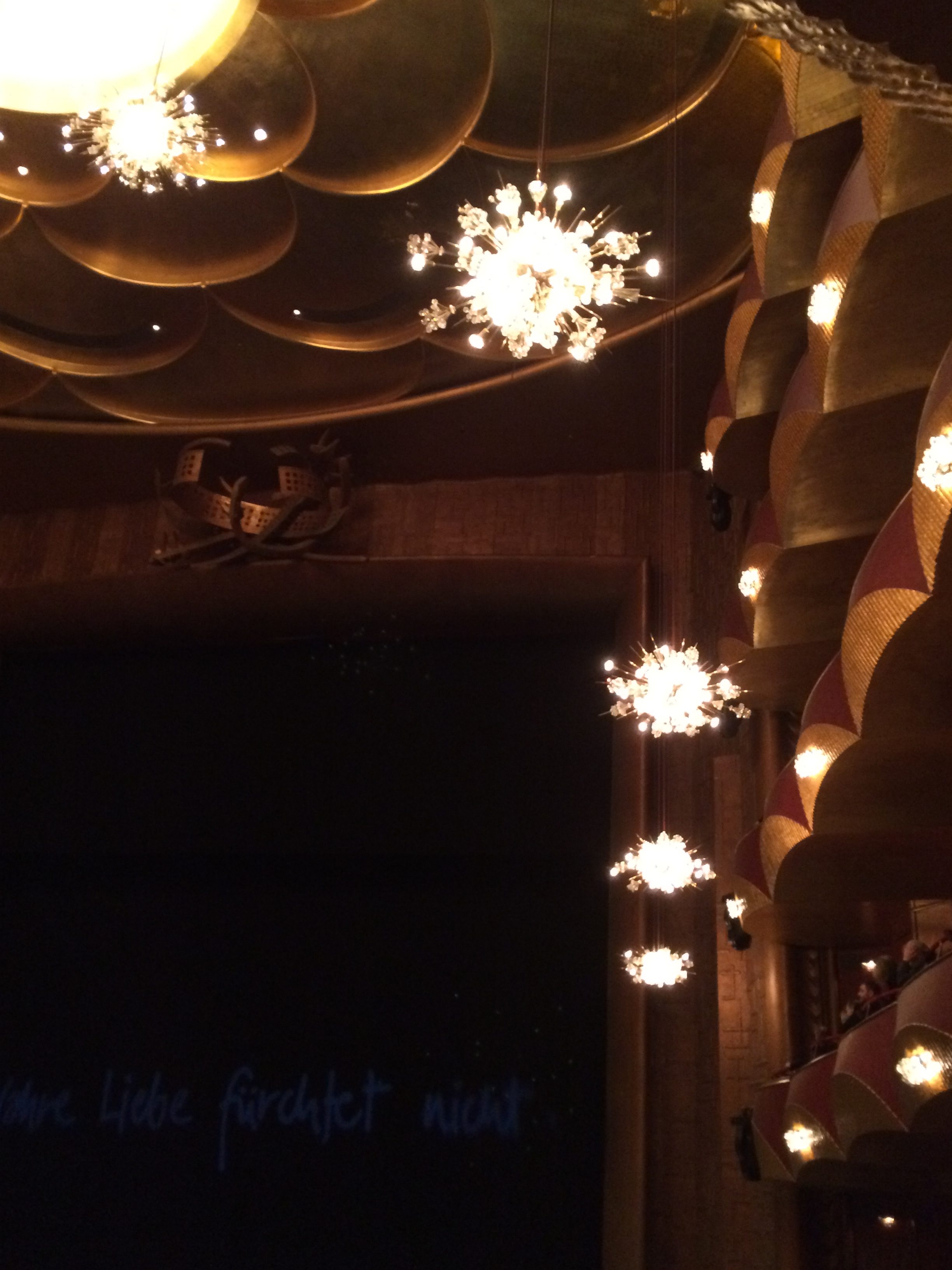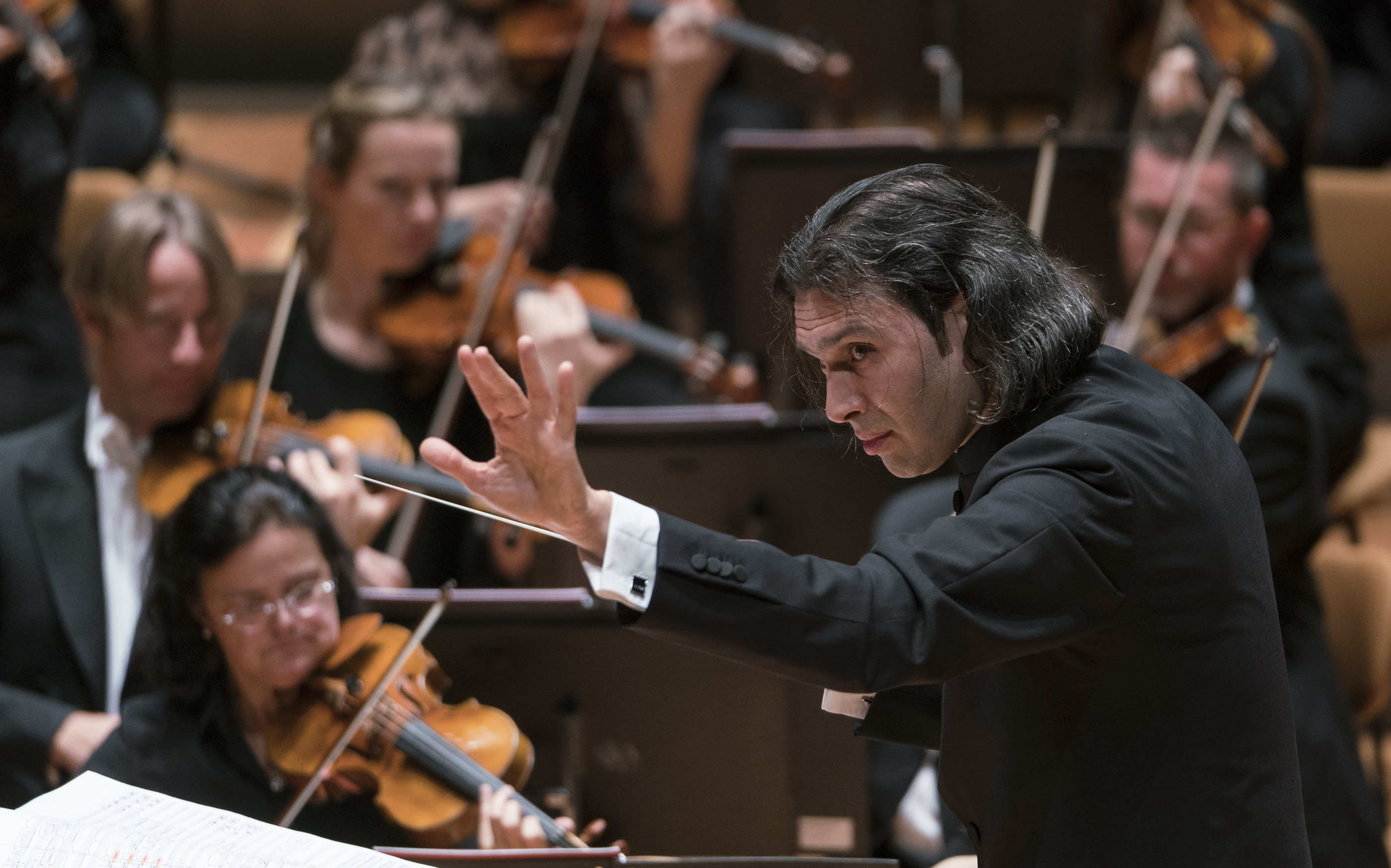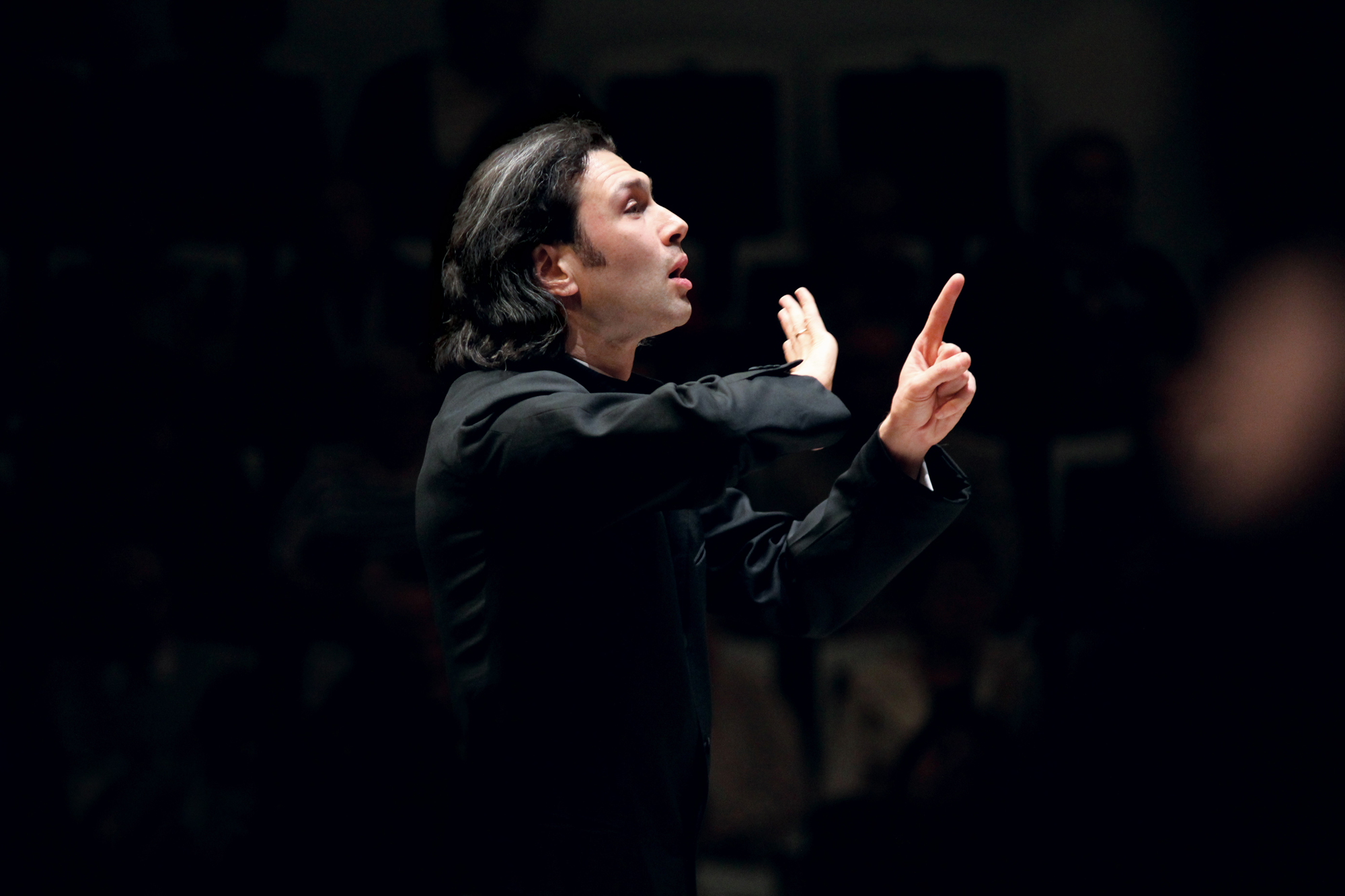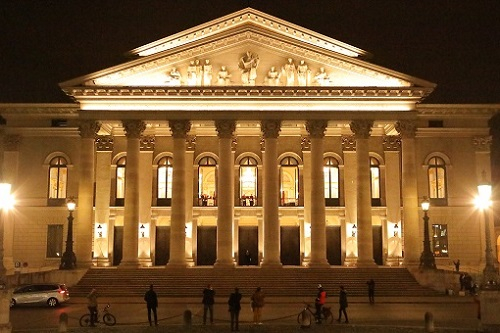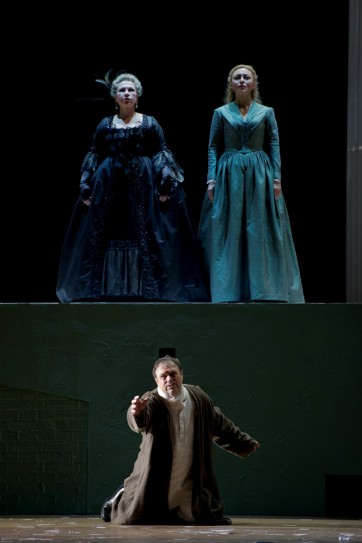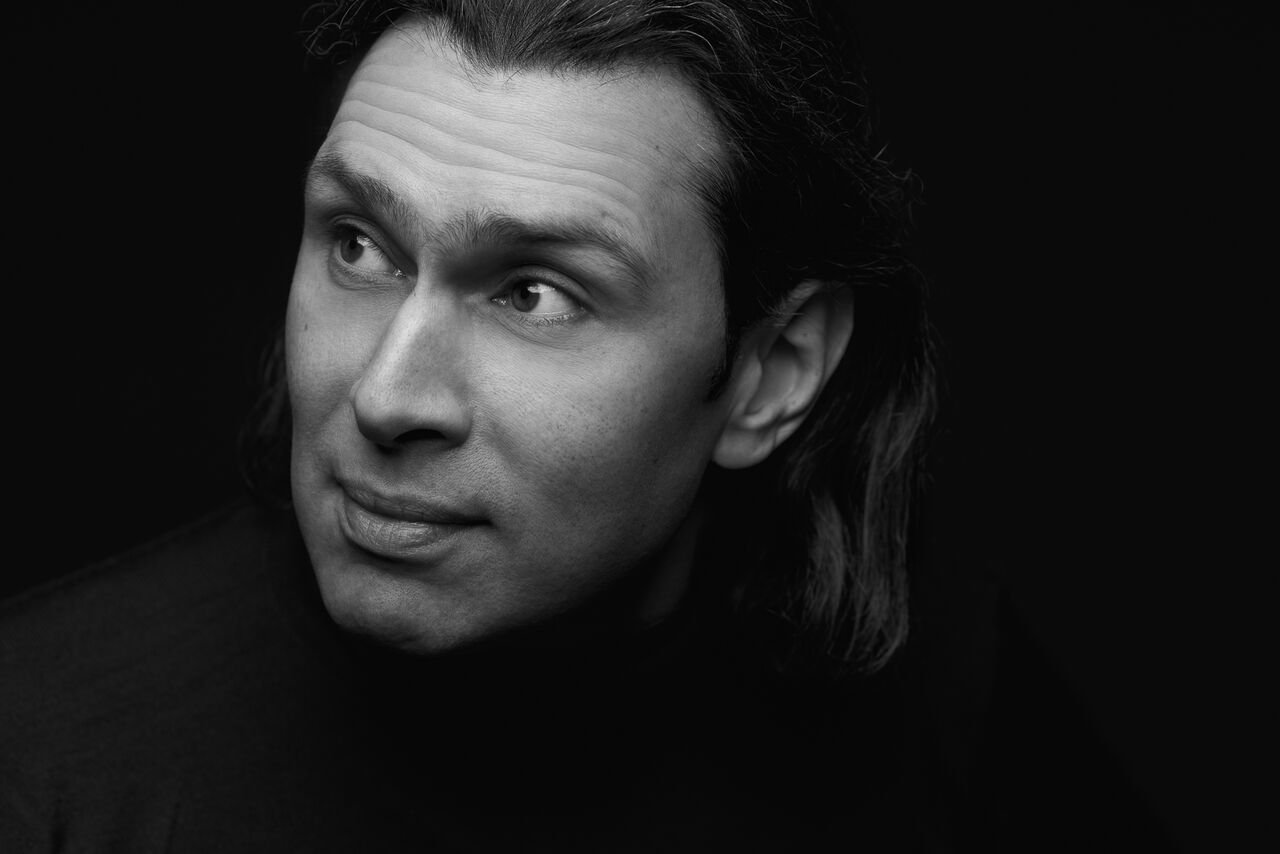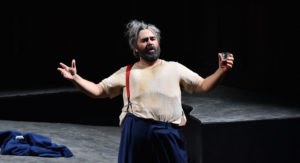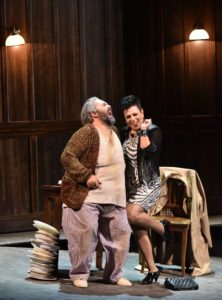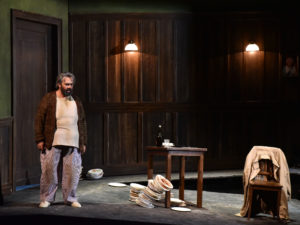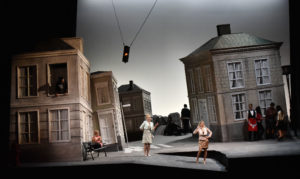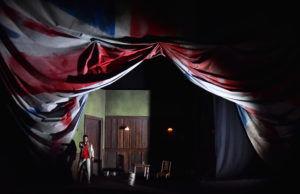Amidst the many classical features published over the past year, the word “relatable” has popped up, an insistent neon sign in a landscape of bucolic rural scenes and insistently grinning portraits. Art, and especially, opera, should be relatable in some way, apparently – relatable as in connecting directly to the viewer’s life, habits, predilections, and peccadillos in obvious and recognizable ways. If Figaro is presented on the stage, we should immediately recognize him, if not as someone else, but precisely as one’s own self: “Hey, that’s me! That’s what I do, that’s how I react, that’s just how I think!” So too for Carmen, the Marschallin, Aida, Papageno, Rigoletto, Lulu, Brünnhilde, Hansel and Gretel, Boris Godounov, the Cunning Little Vixen, the Miserly Knight, Lady Macbeth(s), Eurydice, Rodelinda, Poppea. This desire (more of a demand in some places) to see our immediate and recognizable selves on a stage (on a screen, in a book) is not new. In 2014 American public radio personality Ira Glass dismissed a production of King Lear at the Delacorte Theatre in Central Park, his tweet stating he found “no stakes, unrelatable”, then subsequently referencing 2013 productions of Shakespeare in New York with another pithy tweet: “(F)antastic acting, surprisingly funny, but Shakespeare is not relatable, unemotional.”
Rebecca Mead’s 2014 piece for The New Yorker, The Scourge Of “Relatability”, contextualizes the history of the word in relation to its rise on early-aughties American daytime television and its subsequent rise across various media sources and literary review websites, along with an indicative listicle from a clickbait-heavy site – surely a bullseye example to contemporary eyes, inundated consciously and not with the mechanics of ad tech, whose role here is not inconsiderable. Mead notes the concept has roots in Freud’s mechanism of identification – that is, cultivation of self through imitation and idealization of a parental and/or authority figures. (“Children are inclined to behave like the significant adult models in their environment, Freud postulated. These identifications give identity and individuality to the maturing child,” as Britannica helpfully notes.) The challenge to cultural expression, as Mead rightly identifies, is that the demand for relatability becomes conflated with expectation, that “the work itself be somehow accommodating to, or reflective of, the experience of the reader or viewer.” This has immense implications for opera, with its widely-regarded, unconsciously-held expectations of ecstasy, ones which are all the more subsumed within a culture which grapples with outmoded perceptions and clichés around elitism. Why shouldn’t one want to see one’s self, precisely, live before them, especially when one enters the auditorium having paid good money, made the effort to dress up, obtained the now-required documentation for entry? Mead continues:
The reader or viewer remains passive in the face of the book or movie or play: she expects the work to be done for her. If the concept of identification suggested that an individual experiences a work as a mirror in which he might recognize himself, the notion of relatability implies that the work in question serves like a selfie: a flattering confirmation of an individual’s solipsism.
To appreciate “King Lear”—or even “The Catcher in the Rye” or “The Fault in Our Stars”—only to the extent that the work functions as one’s mirror would make for a hopelessly reductive experience. But to reject any work because we feel that it does not reflect us in a shape that we can easily recognize—because it does not exempt us from the active exercise of imagination or the effortful summoning of empathy—is our own failure. It’s a failure that has been dispiritingly sanctioned by the rise of “relatable.”
The demand on directors, and by association, singers, to be relatable, to have familiar elements of daily life and the 21st century living of it, grows more and more present. “Reimagined” is the buzzword of the Covid era, with presentations of many works overhauled, rebranded, and largely decontextualized for consumption by a supposedly hungry online audience; offering up new/old works with the intention to relay some form of the relatable (be it in gender, gender fluidity, race, sexuality, social strata) before the truly theatrical, is less a fad than a lived reality in many corners of the cultural landscape. The hearty use of digital technologies, while initially heartening 21 months ago, more than often this year points to confusion between the accessible and the relatable; the assumption that we’re all on our computers because of pandemic isn’t wrong but it’s lazy, and takes the onus off the human urge toward imagination, and the exercise of it. We want to imagine ourselves fully dressed, out and about, in pre-corona land, but that’s not going to happen, and so, we’re presented with endless forms of what is perceived by marketing departments to be entirely relatable, and we, of course, are meant to applaud.
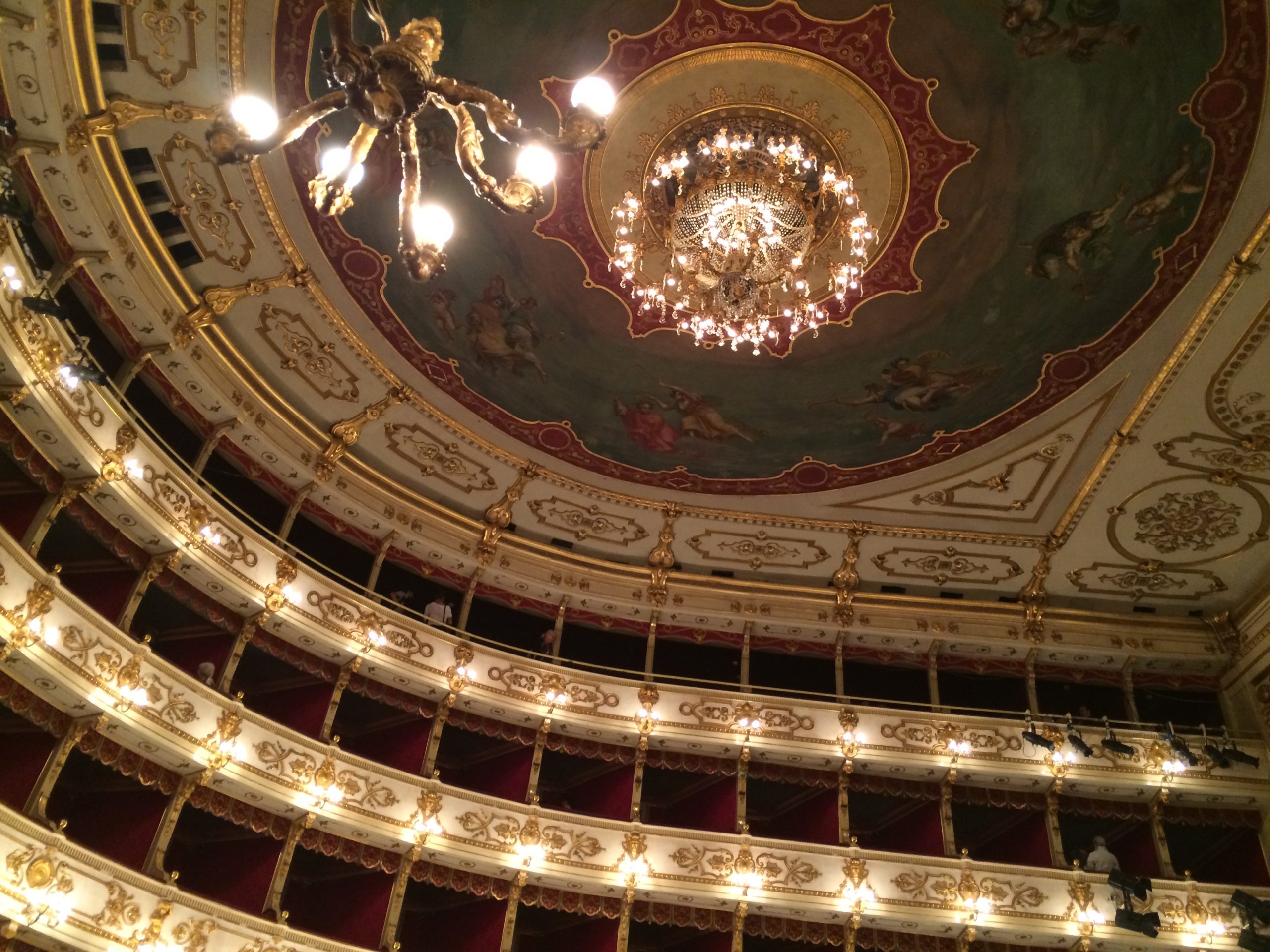
Inside the Teatro Regio di Parma. Photo: mine. Please do not reproduce without express written permission.
Some figures, like Faust, are already familiar, or should be, by the sheer dint of previous literary/socio-cultural history. Don’t we all make a deal with the devil, whether it’s posting open-moistly-mouthed photos in order to get the notice of powerful casting agents, going maskless backstage, posting over-edited (in modern parlance, “curated”) performance snippets on Tik Tok, or even (especially) getting on an airplane at Xmas/New Year’s amidst pandemic? Ah, but that magic word “choice” is a captivating sirin in modern life, eyes glinting with perceived power and colored talons wrapped around an invisible pen, waving the papers for an imaginary divorce from hard, real circumstance – that messy, multi-layered stuff which makes us. It’s pleasant and convenient, (some will righteously label it “immense”, a handy form of ego-combing empowerment), to feel that everything in life is entirely within one’s control, that everything boils down to the woo of personal responsibility and individual energetic direction. I can choose to be agreeable about this exploitative situation; I can be h-o-t as defined by the narrow parameters I myself entrench; I choose to see myself in Carmen; I choose to see Sarastro as a closet sub in search of a dom. I can choose, lalala! If we do not see our very selves precisely presented on the stage, so the thinking goes, then where? Should we (can we) “choose” otherwise? Shall our complicated and messy 21st century world not be part of (nay, constitute the entirety of) theatrical presentation now, in the midst of pandemic? Is it not awfully elitist to ignore such realities given such a forum? Can we choose something else – really? In an industry so bifurcated by geography, funding models, educational models, and quotidian culture, the concept of “relatable” as connected to stagings differs widely, and takes on various forms, some of which are shared, many of which are not. One can choose to applaud or be angry, but one must always be loud in 2021, and probably 2022 also; awareness, contemplation, nuance, quiet – time-consuming, seemingly effortful, unfashionable. The recent hand-wringing in Berlin over The Nutcracker (given intelligent dissection recently in Süddeutsche Zeitung) makes clear the onerous challenges of a lacking historical awareness, the disinterest in engaging with its sharper corners, and the unsexy nature of nuance, a quality which works against the acrid reactivity which makes the machinery of ad tech turn so merrily, which has hoisted the cult of the relatable to godlike status. Everyone takes sides; everyone is supposed to. We signed the papers, after all.
This is not to dismiss diverse representation, a powerful and wholly overdue thing. Such representation offers an encouragement to young artists (read: non-white, non-straight, non-gendered, non-moneyed) who might otherwise not see themselves, literally, figuratively, or otherwise, as having any role or value in the industry, or indeed, elsewhere in the wider world. I have imagined myself, at various points, a mother, a partner, a socialite, a popular and promiscuous girl; I have imagined myself tall and elegant and reed-thin; I have imagined myself tiny-breasted and long-legged and saucer-eyed; I have imagined myself part of a wide and active social group, with a large and rambling line of loud, boisterous relatives; I have imagined myself a successful writer and artist, living in various places, each with its own beautiful view. Don’t dream it, be it; there’s that invisible pen at work again. I don’t have to imagine myself as a lawyer, a doctor, teacher, accountant, engineer; I’ve never been interested enough in those things to exercise such energies, and I know I have the advantage of class, colour, and nationality to take seeing myself in them entirely for granted; others do not. There is no leap of imagination required for seeing and experiencing people like me in those roles. For those who don’t look and sound like me, that leap is required, constantly, outside the theatre just as often as inside of it. That the best and most effective solution might be at the elementary education level is what many nod at with seriousness and understanding, but is the very thing few seem willing to actually do. It isn’t sexy, tangling with education departments and ministries who aren’t interested in you or your world, and such long-haul commitments are made more difficult (and difficult to justify) amidst the economic ruin of pandemic, to wave arms and shout until hoarse, Spend more on school instruments! Stop cutting music classes in your budgets! The issue isn’t as simple as online arm-waves anyway, but oh, the work involved, the sheer level of energy (to petition, to raise awareness, to do the continual footwork, to educate and re-educate one’s self and others) – fighting against decades of lacklustre government policy is not a job for the weak of heart, it bears no public plaudits or shares or retweets, and more often than not of late, no real fruit either. Such work is not favoured by algorithms, ergo, such work does not, within the digital sphere of the 21st century, exist; most arts educators already know this.
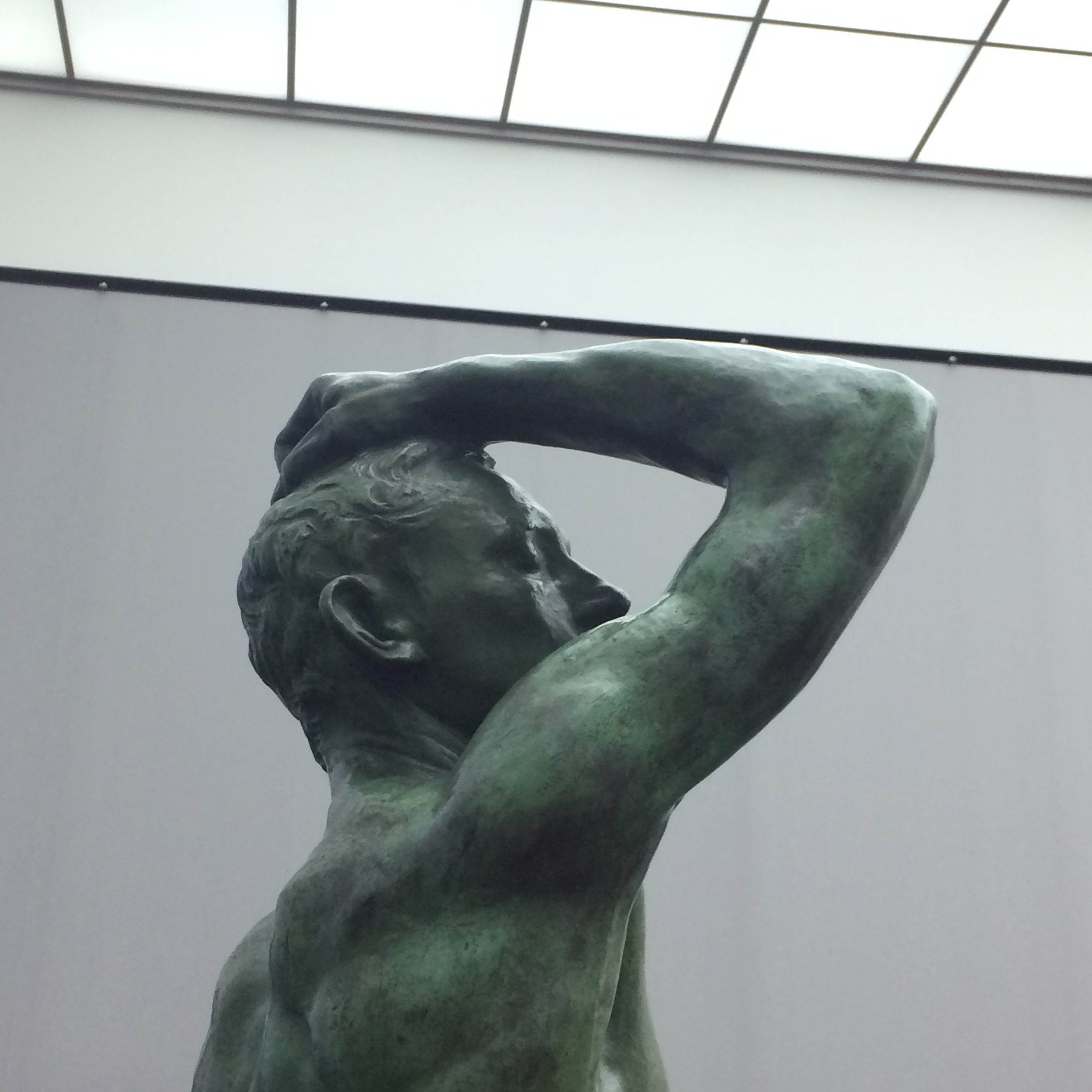
Detail, The Age of Bronze (L’Age d’airain), Auguste Rodin, bronze; 1906. Photo: mine. Please do not reproduce without express written permission.
One thinks back to innumerable noisy recorder lessons in small, windowless rooms, sitting on scratchy orange carpet, one’s fingers moving along the narrow round body, the tips growing moist from all that joyful, effortful breathing producing squeaky versions of “Twinkle, Twinkle, Little Star” and the recognizable theme from Dvořák’s New World Symphony. I could play both, in far fancier (if still simplified) versions on the piano, but then, I came from an odd household, privileged in the sense that culture, including classical music, was an integrated part of quotidian life. I didn’t relate to most of elementary (or high) school, but for the music and cultural/literary elements. For those who keep and cultivate these things, for those whom music is in fact a central facet of daily life, it becomes all too easy to forget about those outside the bubble of such privilege – and it is that, something we inside of it often conveniently forget. Being an educator at post-secondary institutions these last seven years has served to underline, in some rather bold and striking ways, the parameters of such a bubble, and all the concomitant implications of such a world view. Most of my students through the years have never heard of Peter And The Wolf, let alone Prokofiev; many of them think of opera only as a formal if dull event adhering to the #fancy clichés pushed by the very organizations who wish to court them, and those online only too happy to entrench such cliches for the sake of some high-school-competition win. The music-minded note the growing gaps in arts education, sigh heavily, write tweets with predictable words (ie Philistines, barbarism) and carry on listening to the latest BBC3 podcast on the work of a composer many (most?) of the students silently nodded at (but never seen) in such exchanges have never heard of, or probably experience live. Them vs. us; us vs. them; make the arts great (again), or something; RT this; pageviews that. Ad (tech) infinitum.
The polarities encouraged by the mechanics of the internet, and which characterise much online discourse now, have had an obvious and unmissable effect on the discourse around opera. Burn it all down on one side; I want camels in Aida dammit! on the other. Cliques exist, foment, gather choristers accordingly. Polarity, as history has shown, is profitable for the few and bad for the many, and any step outside the boundaries cause for ostracising (or worse yet, in the digital realm, being – gasp – ignored), but such a vast and inflamed auditorium has given rise to a frustrating conflation between relatability and revisionism, with no sense of the influence or role of funding according to geography. When marketing has to somehow make up for a lack of proper funding, well, what then? Somehow the appeals to “relatable” art (and antecedent calls for more diverse representation within it) become louder, with nary a contemplation given to the nuanced ecosystems of creation, imagination, context, history, and plain, messy, debt-ridden, ill, heartbroken people. Everything begins, and ends, with money, and as with educational reform, arts funding is an area rife with predictable name-calling (the poor old Philistines) and salty intransigence. People want to see people like them presented onstage, with all their preferences and problems and concerns, and those with deep pockets will pay for that – but only that. As Mead wrote, “In creating a new word and embracing its self-involved implications, we have circumscribed our own critical capacities.” Such capacities, like nuance, do not translate through the narcissistic lens of the digital realm, and, in the mid-pandemic landscape of opera, are largely not welcome.
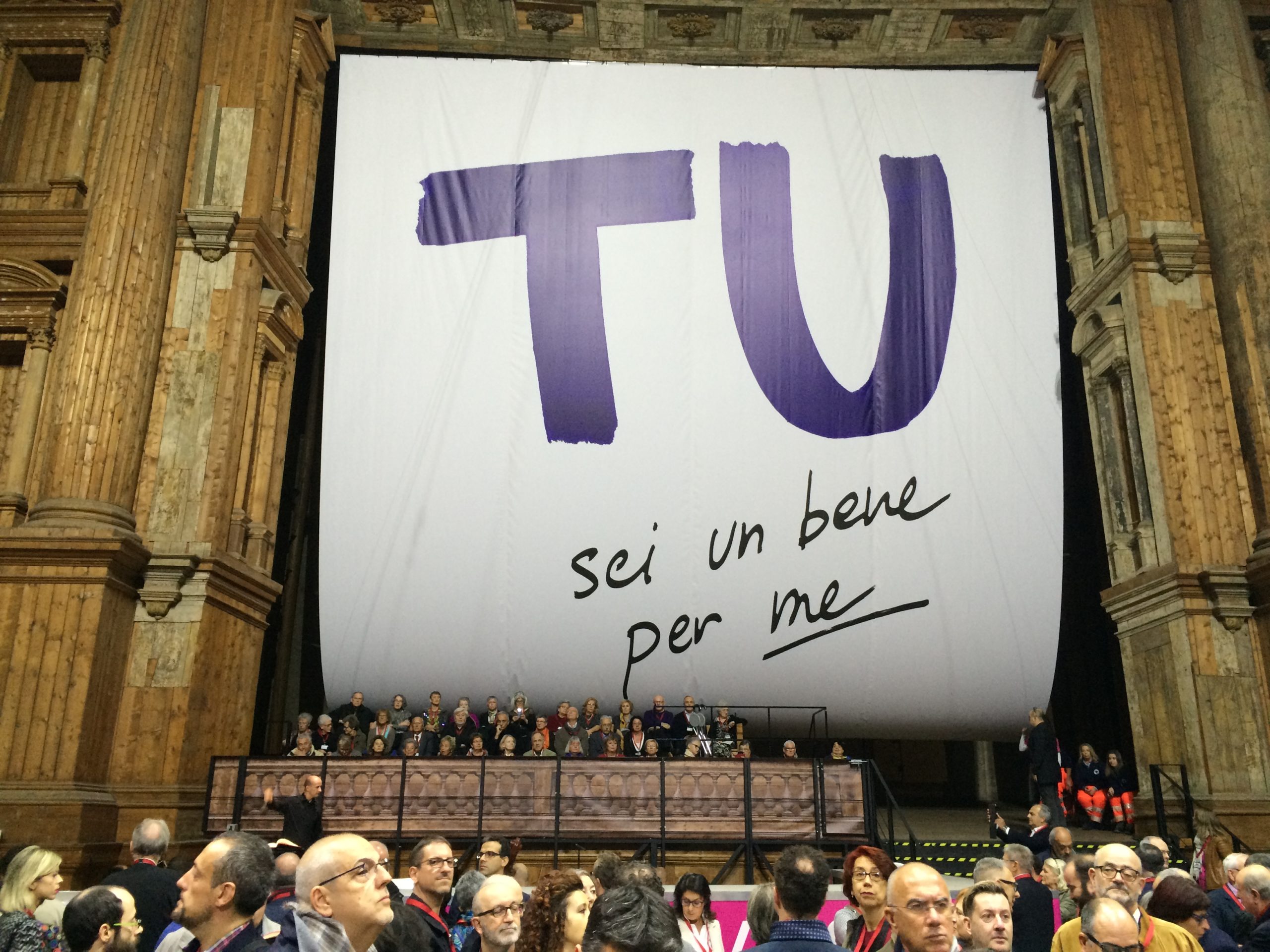
Graham Vick’s interactive production of Stiffelio at Teatro Farnese, Parma, 2017. Photo: mine. Please do not reproduce without express written permission.
Thus the desire (demand) to see ourselves presented, just so, on a stage continues – but so too, I hope, does the desire to see something that demands a leap of faith, and imagination, not unlike church (but with better costumes, unless you are Orthodox). Some of my favorite contemporary directors (Graham Vick, Barrie Kosky, Andrea Breth, Kirill Serebrennikov, Claus Guth, Calixto Bieito, Katharina Thalbach, and Dmitri Tcherniakov among them) take the leap of faith and imagination so integral to theatre, and to the presentation of opera, now more than ever; words bandied about with disdain (modernized, Eurotrash, and my favorite, unrelatable) discount the vital roles of each, and further entrench the polarities which have proven so damaging, and so very profitable. Representation becomes less about literalism and more concerned with staring us opera fans in the face in challenging our culpability for its longtime lack. My favourite operatic presentations tend to ask something I’m not always prepared to give; sometimes there is discomfort, confusion, anger… and hours, weeks, sometimes months later, I am glad for the experience, and grateful. It is with no small awareness that I attend opera not wanting to see me on the stage; I have the luxury of taking for granted the musicians, performers, director, designers, and much of the audience, already does. In no way does such awareness diminish the power of individual imagination within the parameters of creative presentation in that particular auditorium, on that particular day, at that particular hour, in that particular locale, with my own particular knowledge of director / work / singers / conductor / orchestra / house / personnel / history. I attend theatre, and opera, wanting to see another’s life and experiences, wanting another’s thoughts and emotions, hungry for another’s ideas and observations, all of which are conveyed through the lens of just such a chosen group, and thusly judge, evaluate, contemplate, and imagine for myself, whether or not the parts fit, how, and why, or why not. Knowing the history inherent to stage works, like The Nutcracker is vital; I cannot possibly relate to the Sugar Plum Fairy or Drosselmeyer, but I can at least understand, or gain some sense, of the context in which it was created and presented, and engage in an exercise of imagination with relation to Tchaikovsky (and Dumas, and Hoffmann too), to the first (and subsequent) audiences of the work, to evolving senses of lives and world views. Imagination is not the same thing as empathy, and shouldn’t be confused as such; such an conflation is analogous to that of representation and revisionism, and says more about our world now, with its digital cliques and keyboard warriors, its comfortable bubbles and reductive phrases (ie “cancel culture”) borne of the polarities encouraged by algorithms. Anything “guaranteed to offend” yields as many yawns as something “guaranteed to wow”; hype is the ever-bleeding wound collected by the Holy Grail of clicks, one best to exercise conscientious choice in ignoring. Sometimes, that invisible pen comes in rather handy.
The basic elements around which narratives turn are familiar tropes to all, no matter the background or exposure, the education or the privilege, or lack thereof. This past autumn I played my media students Peter And The Wolf (none of them – 61 in all – had ever heard of the work) to encourage a creative cultivation in their perceptions of the building blocks of narrative. For all the bewildered looks I courted at the time (bewildered eyes, that is, times being what they are) the quality of writing thereafter noticeably improved. Whether this is down to Prokofiev, Karloff, my mad live note-taking, or some combination therein, I cannot say, but a thought was reinforced: introduction, enthusiasm, and contextualization matter, and they affect how one thinks of and approaches those other, popular building blocks. None of them could relate to the specific elements; nearly all of them could relate to the work’s themes of growing up and moving away from childhood through frightening, direct experience with a clear and present danger. Romance, with its inherent silliness often presented as Actual Real Love across large swaths of culture, is a common theme carrying its own unique roads to imagination and winding paths to memory; more often than not the two combine in such an element, and produce frequent misunderstandings, if simultaneously checking the box of expected ecstasy. Sentimental swoons at the close of La bohème ignore the basics: there is fighting; there is suffering; there is terrible poverty. There is death, remorse, inevitably harsh growing up. Do we really need some romanticized version of poverty, loss, death? To use the common parlance, fuck that noise. Fighting with the person you love isn’t romantic; it’s awful. Watching the person you love die isn’t pastel-adorned, beautied sentimentality; it’s cold, steely, horrific. There’s no call for a director to make things “relatable” – such a quality already exists within the work itself, as much as its characters. Romanticized clichés – the ones sometimes expected and often friendly to donors (who wish nothing more than to have at the theatre, a manageable, tidy vision of the world that reflects their own desires and/or worldview) – have a tendency to diminish, not enhance, boxing in that which shouldn’t be (really can’t be) tidily wrapped. The work itself is so painfully real in places, the characters themselves could be depicted on the moon (in fact, they were, in Claus Guth’s staging at Opéra de Paris a few seasons ago) – Puccini’s music, his vocal writing, his orchestration, reveals something deeper, more real, more human. Some things are relatable, and some things are not; where there are elements missing, imagination is charged, and re-charged, with every note, every pause, every breath.
This holds true as much for Mimi and Rodolfo as it does for Tosca, for Don Giovanni, for the Marshalline, for Boris Godounov, the fox, the knight, Carmen, and Lulu too. There are smidges of the sacred, the profane, the hellish, the divine, the undeniably human, conveyed not only with words (of course not), but through music, that thing so often (too often) bizarrely, somehow, forgotten in the Race To Relatability. Motifs, orchestration, phrasing, pauses, individual performance choices as much as scored ones, melodies, harmonies, tones (semitones, quarter tones): these choices, made by creators, together with their backgrounds, the worlds from which they sprung, the people who paid them and the people who booed – all are worth examining, staring in the face, knowing, learning, with or without any sense of familiarity, but with nuance, consideration, curiosity. There is no such thing as attending a cultural event with a blank inner slate; there is, however, a role for curiosity, and intimately related to that, a role for imagination, and they are things capable of, and for, everyone. Live creative expression carries the weight of whatever context is brought by artists who might allow for such trust to be built within a space dedicated to imagination and the conscious and delicious exercise of it. Here the invisible pen vanishes, there is no fairytale, nothing is relatable, and everything is understood, or not; here there is only sound, silence, sighs, and one hopes, magic.

